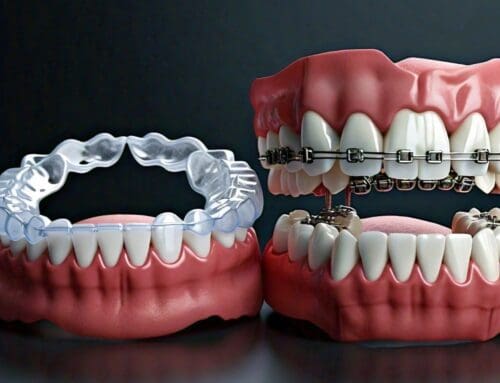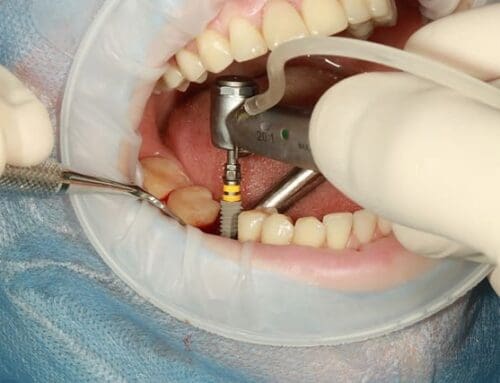Missing teeth can significantly affect your quality of life, causing difficulty eating and speaking and potentially leading to further dental complications if left untreated. While traditional options such as dental bridges and dentures have long been used to replace missing teeth, dental implants have emerged as a trusted and reliable restorative dentistry solution that offers unparalleled stability, aesthetics, and longevity. At Pike District Smiles, we are proud to offer dental implant treatments, providing our patients with a long-lasting, natural-looking solution to restore their smiles and confidence.
In this post, we will guide you through the world of dental implants, explaining how they work, the treatment process, and the numerous benefits they provide to patients seeking to replace missing teeth. By understanding the advantages of dental implants and the revolutionary impact they can have on your dental health, function, and self-esteem, you can make an informed decision about whether to pursue this restorative dentistry option at Pike District Smiles.
Our experienced dental team at Pike District Smiles has the expertise and commitment to excellence necessary to deliver exceptional dental implant treatments tailored to your unique needs and goals. With our advanced technology, comprehensive approach, and attention to detail, we are dedicated to helping you achieve a complete and beautiful smile that stands the test of time.
In the following sections, we will delve into the mechanics of dental implants, discuss the treatment process, and outline the benefits that set dental implants apart from other restorative dentistry options. By gaining insight into this innovative treatment, you can feel confident in exploring dental implants as a solution for your missing teeth and lay the foundation for a revitalized smile.
The Mechanics of Dental Implants: How They Work
Dental implants consist of three main components: the implant itself, the abutment, and the dental crown. The implant, typically made of titanium, acts like a replacement tooth root and is surgically placed into the jawbone. This provides a strong foundation for the final restoration, ensuring stability and longevity. The abutment, attached to the implant, serves as the connection point for the dental crown, which replicates the appearance of a natural tooth.
Over time, the implant fuses with the jawbone through a process called osseointegration, providing unparalleled support and increasing the overall stability of the restoration. This combination of the three components – implant, abutment, and crown – results in a durable, natural-looking solution for missing teeth.
The Dental Implant Treatment Process
The dental implant process commonly involves several stages and can take a few months to complete. This timeline allows for proper healing and osseointegration to occur, ensuring the longevity and success of the implant. The treatment process typically consists of the following steps:
- Consultation and Treatment Planning: Your dentist will perform a thorough examination to determine whether you are a suitable candidate for dental implants. This may include X-rays, CT scans, and a discussion of your medical history and expectations.
- Bone Grafting (if necessary): Some patients may require bone grafting to ensure sufficient bone density and volume for the implant. If needed, this step will be completed prior to implant placement and may require additional healing time.
- Implant Surgery: During this phase, the implant is surgically placed into your jawbone. Anesthesia or sedation options will be offered to ensure your comfort during the procedure.
- Healing and Osseointegration: Proper healing and osseointegration of the implant generally take several months to complete.
- Abutment Placement: Once the implant has fully integrated with the bone, the abutment is attached, preparing the site for the final restoration.
- Crown Fabrication and Placement: A dental crown is custom-made to fit your implant and match your surrounding teeth. Once the crown is ready, it is placed on the abutment, completing your dental implant treatment.
The Benefits of Dental Implants
Dental implants offer numerous advantages over other tooth replacement options, including the following:
- Improved Aesthetics and Functionality: Dental implants provide a natural-looking appearance and restore proper function, allowing you to eat and speak with confidence.
- Prevention of Bone Loss: Implants stimulate the jawbone, promoting bone growth and preventing the bone deterioration that can occur following tooth loss.
- Protecting Adjacent Teeth: Unlike dental bridges, implants do not require the alteration of surrounding teeth, preserving their structure and integrity.
- Longevity: Dental implants are designed for long-term durability, often lasting a lifetime with proper care and maintenance.
- Comfort and Stability: As implants act like natural tooth roots, they provide increased comfort and stability compared to removable dentures.
Caring for Your Dental Implants
While dental implants are an exceptionally durable and long-lasting solution to tooth loss, it is essential to maintain good oral hygiene and regular dental check-ups to ensure their success. Here are some ways to care for your dental implants:
- Brush and Floss Regularly: Maintain proper oral hygiene by brushing your teeth twice a day with a soft-bristled toothbrush and flossing daily. Specialized implant-care brushes and water flossers can also be beneficial for keeping the surrounding gum tissue clean and healthy.
- Attend Regular Dental Visits: Schedule routine dental check-ups and cleanings every six months to ensure your dentist can monitor and maintain the health of your implants and surrounding teeth.
- Avoid Damaging Habits: Steer clear of harmful habits such as smoking, excessive alcohol consumption, and using your teeth as tools, which can negatively impact your implant’s stability and longevity.
- Wear a Mouthguard (if necessary): If you grind your teeth or participate in sports, consider using a mouthguard to protect your dental implants and the rest of your teeth from potential damage.
Conclusion
Dental implants provide a long-lasting, natural-looking, and comfortable solution for missing teeth, allowing individuals to regain their dental function, confidence, and quality of life. At Pike District Smiles, our experienced dental team is dedicated to offering personalized dental implant treatments designed to meet your individual needs and restore your radiant smile.
By understanding the dental implant process, its benefits, and how to care for your dental implants, you can make an informed decision about pursuing this restorative dentistry option to address your missing teeth. Whether you’re missing a single tooth or require more extensive restoration, dental implants can be an excellent investment in your dental health and overall well-being. Contact us today to schedule your dental implant in Bethesda!







